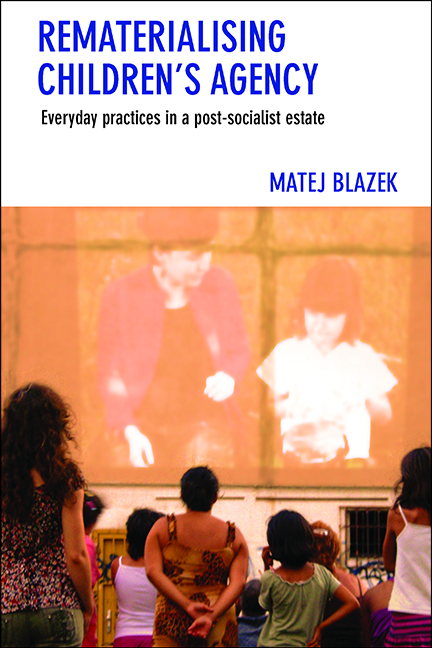two - Locating the field
Published online by Cambridge University Press: 01 September 2022
Summary
An extract from the research diary:
… although I lived in Petržalka [the largest district of Bratislava, Kopčany lies on its outskirts] for the first twenty years of my life and was proud to be familiar with the area, this was the very first time that I was going to visit Kopčany. For one reason, there seemed to be nothing to do in the neighbourhood – located at the end of the city near the Austrian border and with its image of a neglected and dangerous area that one should avoid, especially at night. For another, only to access it was difficult – one had to cross a motorway and a railway, or, if coming from another direction, a zone of former industrial plants … After this, from the overpass that bordered Kopčany, the neighbourhood was below me, five eight-storey prefabricated panel buildings separated from the bridge by a strip of neglected greenery and by an abandoned construction site. I walked down the stairs and entered the actual neighbourhood …
As I was looking for the Community Centre where my interview with the staff was scheduled, I was reflecting on what I actually knew about the place I had just entered and about the children who lived there whom I was supposed to study. And what I thought I knew…
‘Non-payers’, unemployed, people without money, alcoholics, drug dealers and their customers – people with the most diverse social problems live together in a couple of buildings where the authorities concentrated them. A few ordinary tenants got stuck among them…’ (An extract about Kopčany from the most popular Slovakian broadsheet, October 2008)
I was familiar with the reputation of danger and mess but I was also aware that no one who told me about Kopčany had ever visited the place or had known anyone from the area. While I grew up just a couple of hundred metres from Kopčany, in what was, at the first glance, a very similar neighbourhood (‘…although’, I was thinking, ‘we had benches … and no CCTV … and a tarmacked car park full of cars … and the adults usually were not sitting on the concrete wall and having a chat … and this young woman would not stop by me and ask if I was looking for the shop …’), and while I read newspapers and listened to my friends talking about all the dangers and mess in Kopčany – I realised that I did not really know what it was like to live, and particularly to grow up in Kopčany – what problems these children might have, what dreams, desires or simply how they spent their time. realised that I did not really know what it was like to live, and particularly to grow up in Kopčany – what problems these children might have, what dreams, desires or simply how they spent their time.
- Type
- Chapter
- Information
- Rematerialising Children's AgencyEveryday Practices in a Post-Socialist Estate, pp. 21 - 32Publisher: Bristol University PressPrint publication year: 2015



